Academic Integrity - Faculty Portal
Academic Integrity
UMA has an academic integrity policy with sample language to use in your syllabus. The sample language is
“Academic integrity means that a student's work is the product of his/her own effort. Violations of academic integrity include such behaviors as cheating, fabrication, and plagiarism, and are described more fully in the UMA Student Academic Integrity Code which is published in the online UMA Student Handbook. Each student is responsible for learning the standards of academic integrity, and ensuring that his/her work meets these standards. Failure to do so may result in appropriate sanctions consistent with UMA Student Academic Integrity Policy. If you have questions about the academic integrity of your work, discuss these with your instructor before submitting the work. The full policy can be found at https://www.uma.edu/compliance/handbook/academic-integrity/ "
NOTE - Some departments have required langauge regarding academic integrity. Check with your coordinator.
Faculty with discussion boards should advise students about expectations concerning citations for external resources.
The types of assessments you include in your class can support academic integrity. Using authentic assessments is one way to support academic integrity.
Test Integrity in Brightspace
Are you concerned about students cheating on tests/exams in Brightspace? There are options for maintaining test integrity.
- Add an integrity statement/question at the beginning of the quiz asking students to attest they completed the quiz on their own.
- Create a pool of test questions. Each student will get a different test.
- Set a time/date limit for completion.
- Set submission views for after the time/date limit.
- Shuffle quiz questions. The quiz will be in a different order for each student.
- Randomize answer order for multiple-choice questions.
- Disable right-click to eliminate printing the quiz.
- Disable Email, Instant Messages, and Alerts in Brightspace.
- Set up Respondus Lockdown Browser.
- Develop alternative, more authentic, types assessments.
Student Perceptions of Cheating
A study conducted on student cheating (Ezarik, 2021) identified students perceptions of cheating and identified reasons why students may cheat. Students were asked to state their perceptions of "acceptable" and "unacceptable" cheating.
Acceptable Cheating
- Googling during homework
- Study websites like Chegg
- Helping each other with homework
- Unintended plagiarism
Unacceptable Cheating
- Situational - they know it is not acceptable and do not always do it - "so stressed"
- A student taking credit for group work they did not contribute
- 84% indicated using unapproved technology or tools during exams
Reasons Students Identify Why They May Cheat
- Pressure to do well
- Stress
- Lack of preparation
- Heavy or unrealistic perception of work load
- Opportunity
- So easy to do
- Think everyone is doing it
- Little or no consequence
- Lack of ethics
- Lack of understanding of course policies and/or expectations
- Unclear on academic integrity and/or academic dishonest definitions/policies
- Instructors do not notice or report suspected cheating
Link to an article with information about students perceptions of cheating (Ezarik, 2021).
Link to the International Center for Academic Integrity website (2023).
References:
Ezarik, M. (2021, Dec. 7). Shades of Gray on Student Cheating. Inside Higher Ed. Retrieved from https://www.insidehighered.com/news/2021/12/07/what-students-see-cheating-and-how-allegations-are-handled?utm_source=Inside+Higher+Ed&utm_campaign=fa203ff09e-DNU_2021_COPY_02&utm_medium=email&utm_term=0_1fcbc04421-fa203ff09e-236757662&mc_cid=fa203ff09e&mc_eid=67876e5cf0
International Center for Academic Integrity. (2023). Fundamental Values. Retrieved from https://academicintegrity.org/about/values
Using Brightspace to stop cheating https://community.brightspace.com/s/article/Using-Brightspace-to-Stop-Cheating
UMA How to Configure Respondus LockDown Browser https://docs.google.com/document/d/1Ls42tf1HGRgZI9WJxA_kR-waECLkdPSC-Ul580nM5Rc/edit#heading=h.fztz6b75qjek
UMA video - Setting up Respondus Lockdown Browser https://video.maine.edu/media/Setting+up+Respondus+Lockdown+Browser+and+Monitor/1_0im0bkd0
